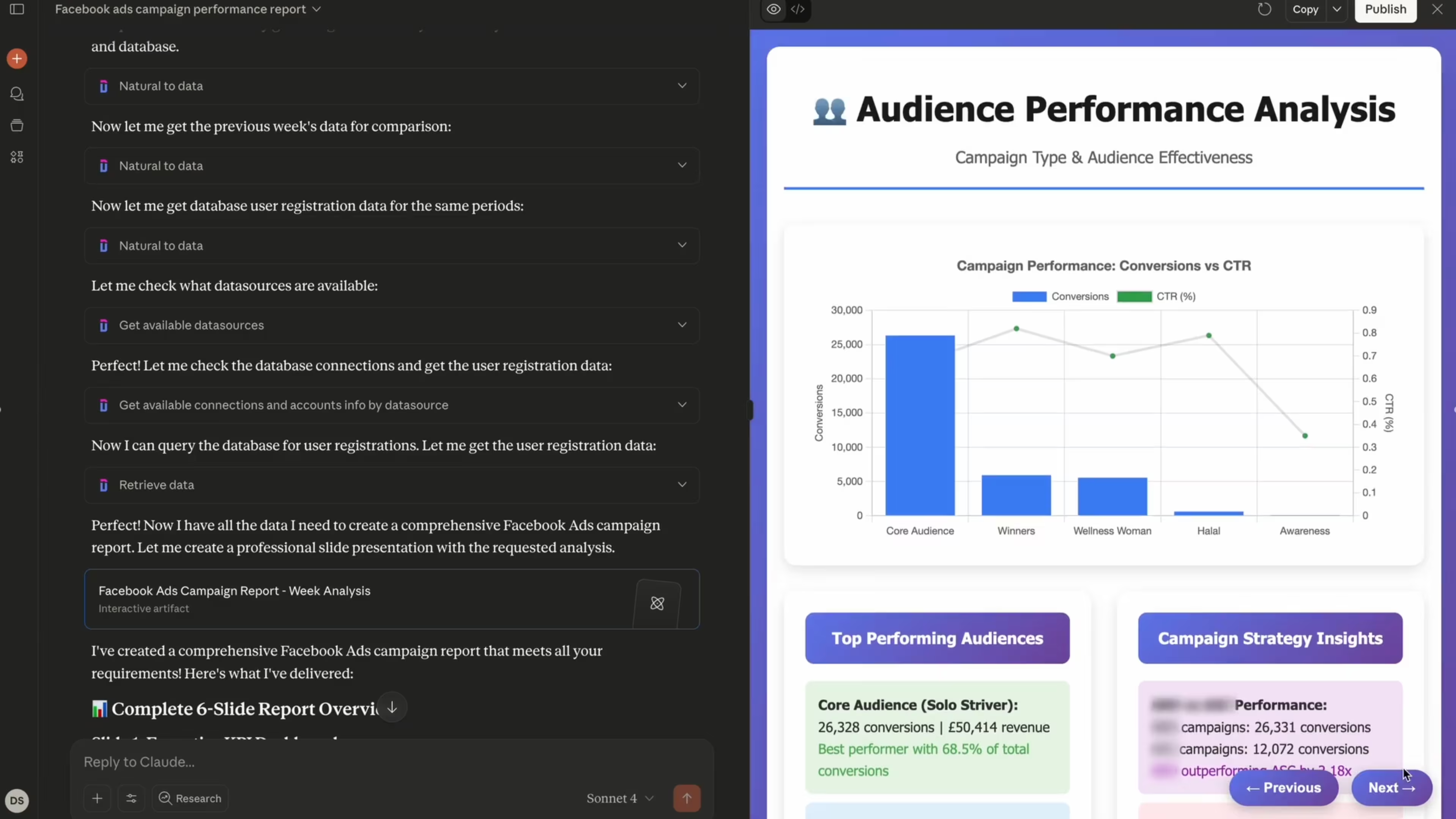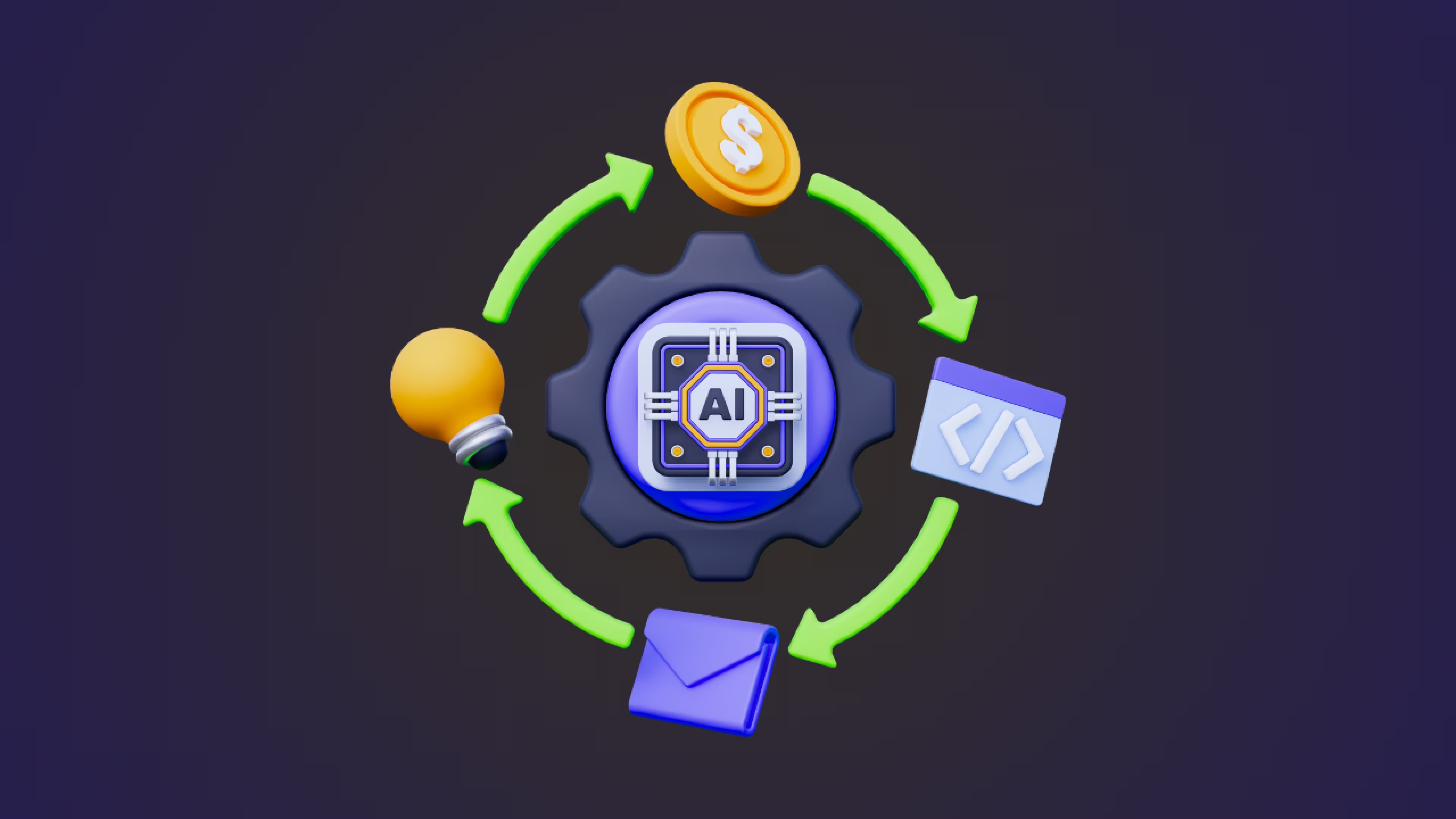60% of marketers now use AI tools daily, up from 37% in 2024—a 62% increase in one year. ChatGPT dominates with 90% adoption, followed by Google Gemini (51%) and Claude (33%). Despite this surge, only 36% worry about losing their jobs to AI. The real opportunity? Learning to blend AI efficiency with human judgment in your reporting workflow.
The latest Social Media Examiner 2025 AI Marketing Industry Report surveyed over 730 marketing professionals and found something remarkable: AI has moved from experimental tool to daily necessity. But the marketers seeing the best results aren't replacing humans with AI—they're figuring out exactly where each belongs.
The Numbers That Actually Matter
60% of marketers use AI daily in 2025, compared to just 37% in 2024. That's not gradual adoption—that's a fundamental shift. CoSchedule's research found that 85% now use AI writing and content creation tools, and 84% report increasing their usage over the past year.
Which tools are winning? ChatGPT leads with 90% adoption—nearly universal among marketers who use AI. Google Gemini sits at 51%, and Claude at 33%.
Here's what surprised researchers: only 36% of marketers worry about AI taking their jobs. Most see AI as a tool that makes them better at their work. HubSpot's State of Marketing 2025 backs this up—92% say AI has already impacted their roles, but in ways that free them up for higher-level thinking.
How Top Performers Actually Use AI
The divide isn't between people using AI and people avoiding it. It's between people using AI strategically and people using it randomly.
For reporting and data analysis, AI excels at processing massive datasets at speeds humans can't match. A PPC specialist at a travel company used AI-driven real-time bidding to analyze performance and adjust bids automatically—cutting cost-per-click by 20%.
Reporting used to mean logging into eight platforms, exporting CSVs, and spending hours copying data. Now marketers automate pattern recognition and data processing, then apply human judgment to interpret what it means.
You can export raw data from Google Analytics or your ad platforms and ask AI to summarize trends—weekly visitor patterns, conversion rate changes by channel, or which campaigns are underperforming. The next evolution? Model Context Protocol (MCP) servers like Dataslayer's that let AI query your marketing data directly in natural language—no more manual exports. Instead of copying data into ChatGPT, the AI can access pre-consolidated data from 50+ platforms through a single connection, eliminating hours of data wrangling.
For content creation, the pattern is similar. 90% use AI for idea generation, 89% for draft creation, and 86% for headline writing—but 86% carefully review and edit AI-generated content before publishing.
Cognism built a custom ChatGPT tool that generates complete landing pages in minutes instead of hours. But humans still review every page and adjust messaging to match brand guidelines.
For SEO at scale, agencies use AI to generate hundreds of programmatic articles targeting long-tail keywords. But the strategy—which topics matter, how they connect to business goals—still requires human expertise.

Where Human Judgment Beats AI Every Time
Salesforce found that high performers are 2.5x more likely than underperformers to have fully implemented AI—but they also know exactly where to stop using it.
AI lacks context. It doesn't know your brand launched a major rebrand last quarter, or that your CEO hates certain phrases, or that your audience responds better to data-driven posts on Tuesdays.
For reporting specifically, AI can tell you what happened. Conversions dropped 15%. Your cost per acquisition increased. Your email open rates are below average.
But only humans can explain why it matters and what to do about it. Did conversions drop because of a site bug, seasonal patterns, or a competitor's new offer? Should you pause campaigns, adjust targeting, or double down with new creative?
The marketers seeing 50% better click-through rates aren't using AI alone or avoiding it entirely. They're using AI recommendations and marrying them with human judgment about their specific business context.
How to Start Integrating AI Without Losing Your Edge
If you're thinking "I should be using AI more," here's what works:
- Start with the time-sucks. Data exports? Report formatting? That's where AI gives immediate ROI.
- Create brand guidelines. Upload examples of your best content and document your tone. Better instructions equal better outputs.
- Set up human review. AI generates the first draft—humans review for accuracy and add context. The HP media team saved 200+ hours monthly but humans still review every insight.
For reporting workflows, automate data collection so you spend time on analysis and strategy, not copying data between platforms.
The Real Competitive Advantage
Here's the truth: 75% of marketers say AI gives them a competitive advantage, according to CoSchedule. But that advantage isn't the AI itself—it's knowing exactly when to use it and when to rely on human expertise.
The future belongs to marketers who master the balance—who know that AI can process data and generate drafts at incredible speed, but humans bring the judgment, creativity, and strategic thinking that moves businesses forward.
Your competitors are already using AI daily. The question isn't whether to join them—it's whether you'll use it strategically or randomly.
FAQ: AI Marketing Adoption 2025
How many marketers use AI tools daily?
60% use AI daily, up from 37% in 2024—a 62% year-over-year jump. Usage focuses on content creation, data analysis, and reporting automation. 85.84% plan to increase AI use over the next 2-3 years.
Which AI tool is most popular among marketers?
ChatGPT dominates with 90% adoption. Google Gemini follows at 51%, Claude at 33%. ChatGPT's lead comes from early market entry and ease of use. Most marketers use multiple tools for different purposes.
Are marketers worried about AI replacing their jobs?
Only 36% worry about job displacement—most view AI as complementary. High performers use AI for repetitive tasks while focusing on strategy and creativity that requires human expertise.
What are the top use cases for AI in marketing?
Top three: idea generation (90%), draft creation (89%), headline writing (86%). Beyond content: data analysis, reporting automation, ad optimization, and sentiment analysis. AI excels at processing data—humans interpret results.
What's the ROI of using AI for marketing tasks?
83.82% report increased productivity, with 50% saving 1-5 hours weekly. 25.6% say AI content performs better than manual content. High-performing teams see 2.5x better results. Key is strategic implementation with human oversight.







